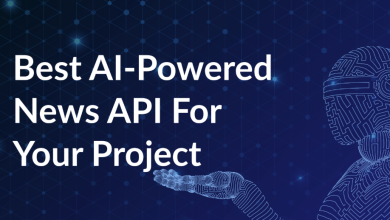
Introduction
Artificial intelligence has quickly moved from the realm of science fiction into boardrooms, classrooms, hospitals, and living rooms. Over the past few years, enterprises with deep pockets have piloted dozens of AI projects — testing everything from predictive analytics to generative content. But for small and midsized businesses (SMBs), which make up more than 90% of companies worldwide, the AI journey has been less straightforward.
These businesses don’t have the luxury of experimental budgets or teams of data scientists. They operate with tighter margins, fewer resources, and less tolerance for trial and error. Yet their need for AI may be even greater than that of large corporations. For SMBs, a few hours saved per week or a few percentage points in efficiency can be the difference between survival and failure.
The question is no longer if SMBs will adopt AI, but how quickly — and at what scale.
From Pilot to Scale: Why SMBs Can’t Afford to Wait
Enterprises often treat AI as a playground for experimentation. They can afford multiple pilots, proofs of concept, and “innovation labs.” For SMBs, that’s rarely the case. They need impact now. In fact, a recent Boston Consulting Group report found that finance leaders who strategically scaled AI initiatives were significantly more likely to see measurable ROI, underscoring that waiting too long on adoption can be more costly than moving forward with a lean, focused strategy.
The challenge is that most SMBs are still mired in fragmented data and manual processes. An independent retailer may rely on a mix of QuickBooks, spreadsheets, and point-of-sale exports. A small manufacturer might have invoices in PDFs, customer data in Shopify, WooCommerce, and payment flows across multiple gateways. In such environments, AI isn’t just about scaling experiments — it’s about stitching together information silos to create a single, actionable picture.
The tools are beginning to catch up. Cloud-based integrations with accounting systems, e-commerce platforms, and payment processors now make it possible for SMBs to access the same kinds of insights once reserved for Fortune 500 companies. A retailer who once spent weeks combing through spreadsheets can now surface demand patterns in hours.
The shift from pilot to scale is underway — and SMBs are poised to be the fastest adopters, precisely because they can’t afford inefficiency.
The Human + AI Workforce
Much of the conversation about AI in the workplace has focused on fears of replacement. For SMBs, the reality looks different: augmentation, not substitution.
AI can’t replace the intuition of a founder who knows their customers by name. But it can eliminate the repetitive tasks that drain their energy and time. Bookkeeping reconciliation, invoice matching, and routine reporting are prime examples.
Consider the concept of an “AI CFO” — not a robot in a boardroom, but a digital assistant that continuously monitors cash flow, flags anomalies, and projects future runway. For a small business owner, that’s not a futuristic luxury; it’s a lifeline.
When AI shoulders the administrative burden, human capacity is freed for what matters most: building relationships, innovating products, and creating customer experiences that stand out in crowded markets. For SMBs, even a few hours a week of reclaimed focus can transform outcomes.
Responsible & Transparent AI
Trust is the bedrock of SMB decision-making. Business owners are rightly cautious about adopting technology that touches sensitive financial or customer data. They’ve seen enough headlines about breaches, bias, and regulatory crackdowns to know that AI comes with risks.
This is why responsible AI principles are no longer optional — they are mandatory. Transparency, explainability, and security must be built in from day one. SMBs cannot be expected to interpret opaque algorithms or navigate complex compliance regimes alone.
The regulatory landscape is also shifting. The European Union’s AI Act, the U.S. Federal Trade Commission’s evolving guidelines, and new frameworks in markets from Singapore to Brazil all point toward a future where AI compliance is as critical as tax compliance. Yet for SMBs, compliance isn’t simple. As the AI Policy Bulletin points out, many smaller businesses are struggling with the complexity and cost of adapting to these new rules — and without practical pathways, the barriers to adoption risk widening the gap between large enterprises and everyone else.
For SMBs, adopting AI without attention to responsibility is a liability. The tools that succeed will be those that combine intelligence with guardrails — delivering insights without sacrificing trust.
AI and Sustainability: Driving ESG at the SMB Level
When most people think of ESG and climate action, they picture multinational corporations making public commitments to net-zero. But it’s SMBs — the backbone of the global economy — that collectively have the largest footprint.
AI has the potential to transform how smaller companies engage with sustainability. By optimizing supply chains, reducing waste, and making smarter purchasing decisions, SMBs can shrink their carbon impact while saving money. AI-driven payments and digital currencies also open new doors, such as enabling automated tracking of carbon offsets or embedding climate-positive choices into everyday transactions.
For example, an independent wholesaler using AI to better forecast demand can avoid both overstocking (which leads to waste) and understocking (which leads to costly rush shipments). A small services firm can use AI to analyze energy consumption patterns and identify savings that also reduce emissions.
The broader impact is profound: when millions of small businesses each take small climate-positive steps powered by AI, the aggregate effect rivals that of the largest corporations. Far from being on the sidelines of sustainability, SMBs can become its most effective engine.
The Road Ahead: Preparing for AI’s Mainstream Moment
We are at a tipping point. Within the next three to five years, AI will become as essential to SMB operations as email or accounting software. Those who embrace it now will not just survive — they will lead.
The transition requires a mindset shift. SMB leaders must stop thinking of AI as an experimental luxury and start seeing it as a necessity. The tools exist, the integrations are improving, and the regulatory pathways are becoming clearer. The opportunity is not only to catch up with larger competitors but, in some cases, to leapfrog them.
The businesses that win in the AI era will be those that use it to amplify human capacity, embed trust, and align with global sustainability goals.
Conclusion
SMBs have always been the backbone of economies worldwide. They are the job creators, the community anchors, and the innovators in niche markets. Now, with AI at scale, they have a chance to not only compete with giants but to lead in resilience, growth, and sustainability.
The adoption curve is no longer hypothetical. It’s here. The only question that remains is whether SMBs will be leaders — or laggards — in AI’s mainstream moment.




